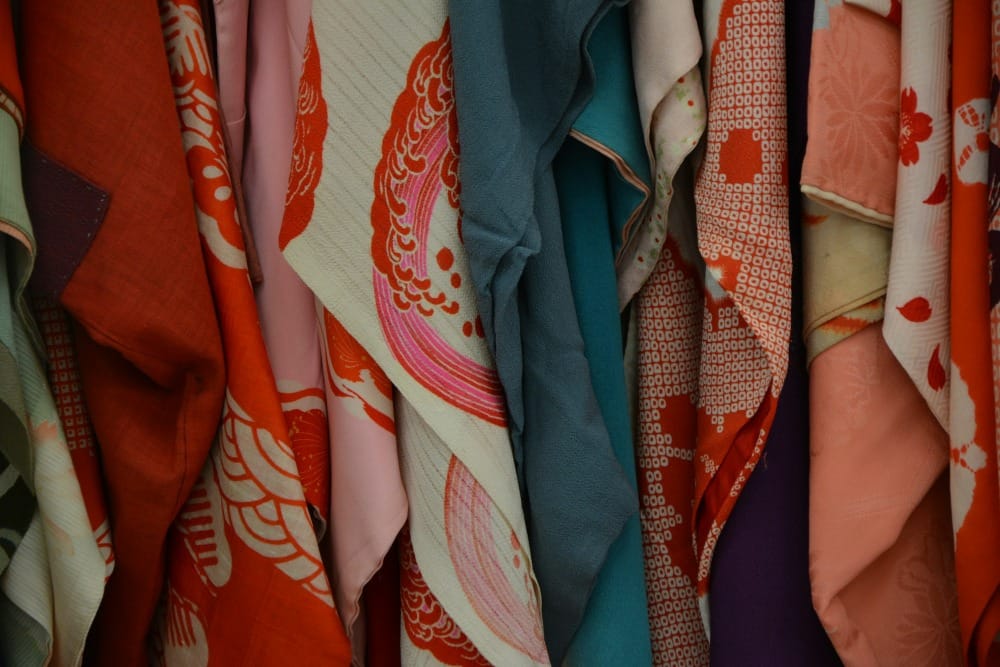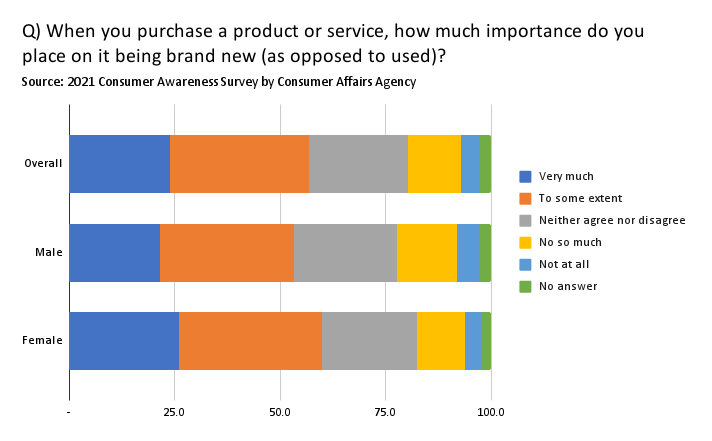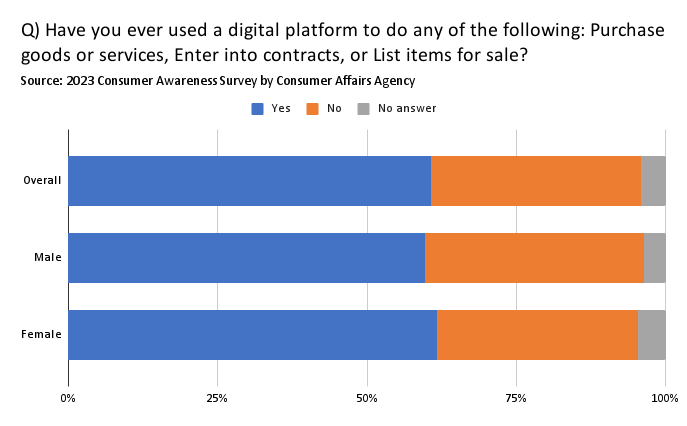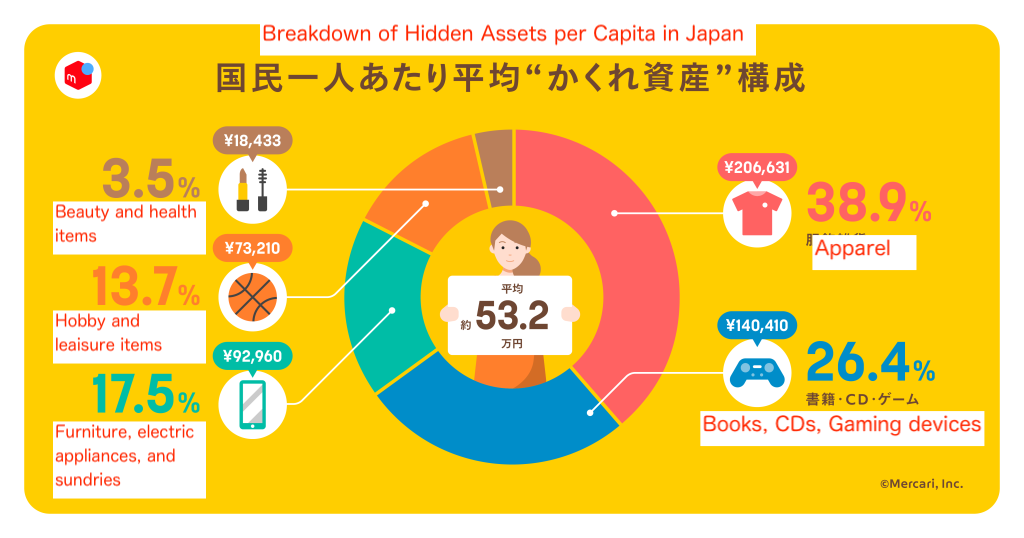What is the Kobutsusho license?: A must for reuse business in Japan
The 'Kobutsusho Kyoka' (古物商許可), or secondhand dealer license in English, is required in Japan for businesses dealing in reuse and recycle legally. This article will explain the license, including how to apply for it, and then discuss the current state of the reuse market in Japan.

Ensuring legitimate transactions in the recycle and reuse market
The overview
The secondhand dealer license ('Kobutsusho kyoka', hereafter Kobutsusho license) aims to prevent the trade of stolen goods and protect consumers by regulating the secondhand market. It helps ensure that the recycle and reuse businesses operate responsibly. Given the nature of the license, you are supposed to apply for a permit/license at your local police station.
Summary
Ensuring legitimate transactions in the recycle and reuse market
Who needs it? Need at Mercari?
Be aware of illegal transactions
What are the penalties for trading without license?
How to apply for Kobutsusho license
After submission, training sessions required
Japanese reuse market overview
Don't Japanese people prefer new items?
Japanese average 'hidden assets' per person: ¥532,000
Top 10 companies hold over more than a quarter of the resale market
With this Industry Outlook tag, we provide detailed reports and information on current trends in specific industries and sectors within Japan to help you identify new business opportunities.
Why needed?
Dealers in recycle/reuse might unknowingly purchase stolen items. To prevent the sales of stolen goods and expedite their recovery, there are three key obligations for those engaging in the business, including:
- Verification of customer identity
- Reporting of suspicious items
- Maintaining transaction records
(Source: '古物営業と防犯三大義務 Three major security obligations for secondhand dealers', 一般社団法人東京古物商防犯連盟 Antique Dealers Federation of Tokyo)
The Kobutsusho licensing system ensures dealers avoid handling stolen goods by verifying the seller's identity, and keeping transaction records in case an item becomes the subject of a criminal investigation.
Who needs it? Need at Mercari?
Anyone running a business that buys, sells, or exchanges secondhand goods needs a Kobutsusho license. This includes businesses like:
- Resale or recycle/reuse shops
- Antique dealers
- Pawn shops
On the other hand, for example, most Mercari users likely trade second-hand goods without a secondhand dealer license. Mercari is primarily used for decluttering and selling unwanted items at reasonable prices rather than making a profit. However, if you do try to make a profit, this practice is considered a business activity and could be problematic. I'll explain in the next section.
Be aware of illegal transactions
Okay, so what exactly defines 'business' activity? Mercari explains that they are a platform for individuals to buy and sell goods. 'It's designed for people to exchange unwanted items, so generally, the Secondhand Articles Dealer Act* doesn't apply' in its FAQ. *The Secondhand Articles Dealer Act is the law that provides the basis for the Kobutsusho License.
However, it also says:
If you resell items from Mercari for profit, you'll be considered as a 'business' even if you view it as simply earning extra cash. In reality, however, the distinction between business and non-business activities is not always clear.
More importantly, buying used goods cheaply and reselling them for profit is not allowed without a Kobutsusho licence, regardless of whether online or offline. 'It is illegal,' points out Takeshi Inokuchi, an administrative scrivener with expertise in recycling and reuse transactions.
These practices, such as retail arbitrage and flipping, are called 'sedori'(せどり) in Japanese and are illegal if you do not have a secondhand dealer license. This topic deserves a deeper dive, so I'll dedicate a separate article to exploring this topic further.

What are the penalties for trading without license?
Trading, exchanging, or consigning used goods without a secondhand dealer license ('Kobutsusho kyoka', hereafter Kobutsusho license) is a violation of the Secondhand Articles Dealer Act and is punishable by imprisonment for up to three years, a fine of up to 1 million yen, or both.
How to apply for Kobutsusho license
Fees and required documents
Fee: ¥19,000. This applies to Tokyo. Fees may vary in other prefectures.
To obtain the license, you need to apply at the police station in your area of residence. The necessary documents are as follows (in the case of Tokyo):
- Application form
- Written oath
- CV
- A copy of your residence certificate (juumin-hyo, 住民票) with your registered domicile (or nationality for foreign nationals)
- Identification documents
- Documents that verify the right to use the URL (if applicable)
For companies, you'll also need:
- Certificate of registration, or tohon (謄本)
- Articles of incorporation, or teikan (定款)
Submit the completed documents and application fee to the police station with jurisdiction over your intended business location.
After submission, training sessions required
After the Prefectural Public Safety Commission reviews and approves your application, you will be issued a license. This license requires attendance at a training session where you will learn about your obligations and responsibilities as a licensed secondhand dealer.
Due to the recent surge in popularity of the secondhand market, there may be a waiting period for these training sessions.
Japanese reuse market overview
Don't Japanese people prefer new items?
As many readers here may have noticed, Japanese people tend to prefer buying brand new product, particularly electric appliances and furniture. This is just a personal opinion, but the author thinks this preference stems from the period of rapid economic growth after World War II when people embraced a new way of life and development. This mindset seems to have remained as a culture.

A Consumer Affairs Agency survey in 2021 found that 56.9% of respondents favoured new products (answering 'Very much' or 'Yes'). However, without data on recent trends, it's possibly not appropriate to judge whether this percentage is high or low.
On the other hand, a survey two years later found that 60.7% of respondents had experience using online platforms to sell items, enter into contracts for services or goods, or make purchases.

Reuse market is growing
According to the Reuse Economic Journal's 'Reuse Market Databook 2024' (リユース経済新聞, 'リユース市場データブック2024'), the reuse market has grown for 14 consecutive years, reaching ¥3.1 trillion in 2023. They further estimate that the market will reach ¥4 trillion by 2030. This growth is especially driven by factors since 2020 in the post-COVID era, such as the demand for remote work, the trend to avoid crowded places (mitsu), and the subsequent need to save money due to rising prices. Additionally, the journal points the continuing trend of popularity in the Showa period as vintage.
The Journal also estimates that over 40 million people in Japan have purchased used clothing. While this is a cumulative figure and cannot be compared simply, it represents one-third of the nation's population. The next most popular category was 'toys and models' with 18.99 million buyers.
Japanese average 'hidden assets' per person
A 2023 survey conducted by Mercari, under the supervision of NLI Research Institute, estimates the average person in Japan has approximately ¥532,000 in hidden assets, consisting of unused goods in Japanese households. Apparel products make up the largest portion of these assets, accounting for 38.9%.

Interestingly, the survey also found that the unwanted items people plan to throw away during the traditional year-end cleaning (大掃除) in Japan are worth an average of ¥85,000.
Top 10 companies hold over more than a quarter of the resale market
According to the aforementioned Journal, the top ten companies (on the sales revenue basis) in the market account for 27.2% of the market share. Notably, these 10 companies maintained a high growth rate of 21.9%, significantly exceeding the overall market growth rate of 7.8%.
With the government backing circular businesses, the journal concludes that the resale market is poised to play an even more vital role.
With thanks to Takeshi Inokuchi for his supervision.




